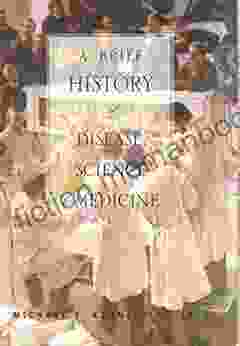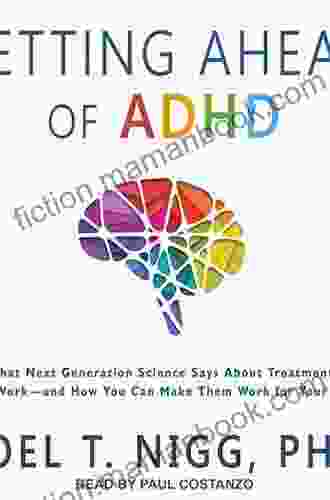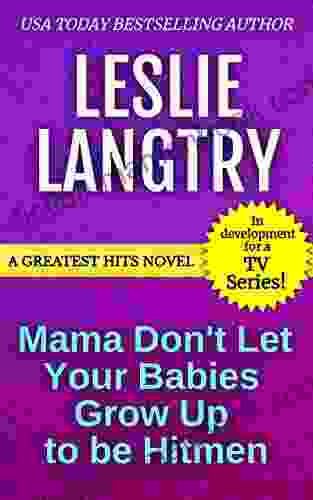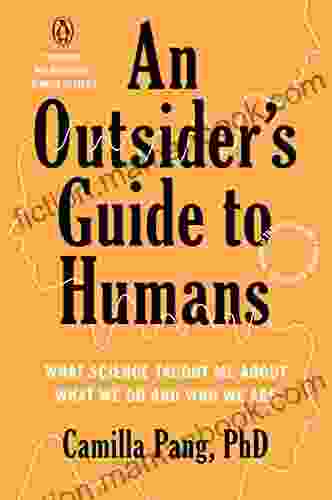A Comprehensive History of Disease Science and Medicine: A Journey of Discovery and Innovation

Disease science and medicine have a rich and fascinating history that spans thousands of years. From the earliest attempts to understand and treat illness to the cutting-edge research of today, the pursuit of knowledge about disease has been a driving force behind human progress.
5 out of 5
| Language | : | English |
| File size | : | 5333 KB |
| Text-to-Speech | : | Enabled |
| Screen Reader | : | Supported |
| Enhanced typesetting | : | Enabled |
| Word Wise | : | Enabled |
| Print length | : | 656 pages |
| Lending | : | Enabled |
In this article, we will explore the major milestones in the history of disease science and medicine, from the ancient world to the present day. We will examine the key discoveries that have shaped our understanding of disease, the development of new treatments, and the impact that disease has had on human society.
Ancient Origins
The earliest evidence of disease science dates back to the ancient world. In ancient Egypt, healers used a variety of herbal remedies to treat common ailments. The ancient Greeks developed a more sophisticated understanding of disease, and they believed that illness was caused by an imbalance of the four bodily humors: blood, phlegm, yellow bile, and black bile.
In the Roman Empire, the physician Galen developed a comprehensive system of medicine that was based on the teachings of the ancient Greeks. Galen's work was influential for centuries, and it helped to lay the foundation for modern medicine.
The Middle Ages
During the Middle Ages, Europe experienced a decline in scientific knowledge. However, the Arabs preserved much of the ancient Greek and Roman medical knowledge, and they made significant contributions to the field of medicine.
One of the most important Arab physicians was Avicenna, who wrote the Canon of Medicine, a vast encyclopedia of medical knowledge. The Canon was translated into Latin in the 12th century, and it became one of the most influential medical texts in Europe for centuries.
The Renaissance and Reformation
The Renaissance and Reformation marked a period of renewed interest in science and learning. In the 15th and 16th centuries, European scholars began to challenge the traditional Galenic system of medicine. One of the most important figures in this movement was the Flemish physician Andreas Vesalius, who published a groundbreaking anatomy book in 1543.
The work of Vesalius and other Renaissance scholars helped to lay the foundation for modern anatomy and physiology. This new knowledge led to a better understanding of disease and the development of new treatments.
The 18th and 19th Centuries
In the 18th and 19th centuries, there were a number of important scientific breakthroughs in the field of medicine. These breakthroughs included the discovery of the circulation of the blood, the development of vaccines, and the invention of the microscope.
The discovery of the circulation of the blood by William Harvey in the 17th century was a major turning point in the history of medicine. This discovery helped to explain how diseases spread throughout the body, and it led to the development of new treatments for diseases such as smallpox and tuberculosis.
The development of vaccines in the 18th century was another major breakthrough in the fight against disease. The first vaccine, for smallpox, was developed by Edward Jenner in 1796. This vaccine proved to be highly effective, and it helped to save millions of lives.
The invention of the microscope in the 17th century also had a profound impact on the development of medicine. The microscope allowed scientists to observe the microscopic world, and this led to a new understanding of the causes of disease.
The 20th Century
The 20th century saw a number of important advances in the field of medicine. These advances included the development of antibiotics, the discovery of DNA, and the invention of the MRI scanner.
The development of antibiotics in the 1940s was a major breakthrough in the fight against bacterial infections. Antibiotics have saved millions of lives, and they have made a significant impact on the health of the world's population.
The discovery of DNA in the 1950s was another major breakthrough in the history of medicine. DNA is the genetic material of all living things, and its discovery has led to a new understanding of how diseases are inherited and how they can be treated.
The invention of the MRI scanner in the 1970s was another important advance in medical technology. MRI scanners allow doctors to see inside the human body without surgery. This technology has helped to diagnose and treat a wide range of diseases.
The 21st Century
The 21st century is still in its early stages, but it has already seen a number of important advances in the field of medicine. These advances include the development of new vaccines, the discovery of new drugs, and the development of new technologies for treating disease.
One of the most important advances in the 21st century has been the development of new vaccines. These vaccines have helped to protect people from a wide range of diseases, including measles, mumps, rubella, and polio.
The discovery of new drugs has also been an important advance in the 21st century. These drugs have helped to treat a wide range of diseases, including cancer, HIV/AIDS, and Alzheimer's disease.
The development of new technologies for treating disease has also been an important advance in the 21st century. These technologies include stem cell therapy, gene therapy, and nanotechnology.
The history of disease science and medicine is a long and fascinating one. From the earliest attempts to understand and treat illness to the cutting-edge research of today, the pursuit of knowledge about disease has been a driving force behind human progress.
As we continue to learn more about disease, we will be better able to prevent, diagnose, and treat it. This will lead to a healthier and longer life for all.
Additional Resources
- The History of Medicine: A Timeline
- The Human Body: A Timeline
- The Global Burden of Disease: A Comprehensive Assessment of Mortality and Disability from Disease
5 out of 5
| Language | : | English |
| File size | : | 5333 KB |
| Text-to-Speech | : | Enabled |
| Screen Reader | : | Supported |
| Enhanced typesetting | : | Enabled |
| Word Wise | : | Enabled |
| Print length | : | 656 pages |
| Lending | : | Enabled |
Do you want to contribute by writing guest posts on this blog?
Please contact us and send us a resume of previous articles that you have written.
 Top Book
Top Book Novel
Novel Fiction
Fiction Nonfiction
Nonfiction Literature
Literature Paperback
Paperback Hardcover
Hardcover E-book
E-book Audiobook
Audiobook Bestseller
Bestseller Classic
Classic Mystery
Mystery Thriller
Thriller Romance
Romance Fantasy
Fantasy Science Fiction
Science Fiction Biography
Biography Memoir
Memoir Autobiography
Autobiography Poetry
Poetry Drama
Drama Historical Fiction
Historical Fiction Self-help
Self-help Young Adult
Young Adult Childrens Books
Childrens Books Graphic Novel
Graphic Novel Anthology
Anthology Series
Series Encyclopedia
Encyclopedia Reference
Reference Guidebook
Guidebook Textbook
Textbook Workbook
Workbook Journal
Journal Diary
Diary Manuscript
Manuscript Folio
Folio Pulp Fiction
Pulp Fiction Short Stories
Short Stories Fairy Tales
Fairy Tales Fables
Fables Mythology
Mythology Philosophy
Philosophy Religion
Religion Spirituality
Spirituality Essays
Essays Critique
Critique Commentary
Commentary Glossary
Glossary Bibliography
Bibliography Index
Index Table of Contents
Table of Contents Preface
Preface Introduction
Introduction Foreword
Foreword Afterword
Afterword Appendices
Appendices Annotations
Annotations Footnotes
Footnotes Epilogue
Epilogue Prologue
Prologue Yoshihito Isogawa
Yoshihito Isogawa Marc Gregoire
Marc Gregoire Sherry V Ostroff
Sherry V Ostroff Carol D Guerrero Murphy
Carol D Guerrero Murphy Margaret Kennedy
Margaret Kennedy Honey Phillips
Honey Phillips Madeline K Adams
Madeline K Adams St Teresa Of Avila
St Teresa Of Avila James Goldberg
James Goldberg Pizpaw Patterns
Pizpaw Patterns Elaine Viets
Elaine Viets Jean Martin Fortier
Jean Martin Fortier Ed Rosenthal
Ed Rosenthal Elizabeth Hoyt
Elizabeth Hoyt Leigh Stein
Leigh Stein Celia Genishi
Celia Genishi Eivor Martinus
Eivor Martinus By Martha E Ryan
By Martha E Ryan Michael Bailey
Michael Bailey Kj Walt
Kj Walt
Light bulbAdvertise smarter! Our strategic ad space ensures maximum exposure. Reserve your spot today!
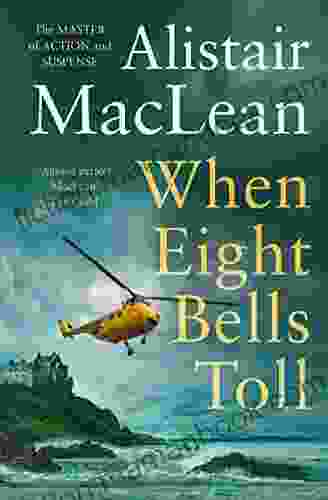
 Mario BenedettiDelve into the Enigmatic World of Agatha Christie's "When Eight Bells Toll":...
Mario BenedettiDelve into the Enigmatic World of Agatha Christie's "When Eight Bells Toll":... Barry BryantFollow ·12.9k
Barry BryantFollow ·12.9k Cason CoxFollow ·12.6k
Cason CoxFollow ·12.6k Emilio CoxFollow ·15.6k
Emilio CoxFollow ·15.6k Danny SimmonsFollow ·9.6k
Danny SimmonsFollow ·9.6k Melvin BlairFollow ·14.3k
Melvin BlairFollow ·14.3k Lawrence BellFollow ·14.1k
Lawrence BellFollow ·14.1k Nathaniel PowellFollow ·16.9k
Nathaniel PowellFollow ·16.9k David MitchellFollow ·17.7k
David MitchellFollow ·17.7k
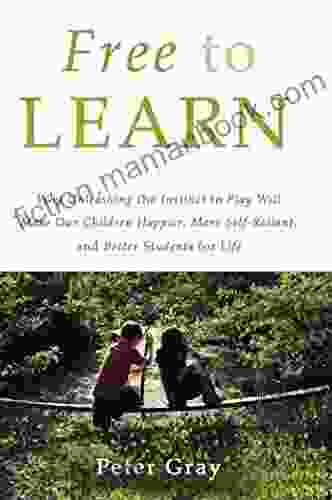
 Abe Mitchell
Abe MitchellWhy Unleashing the Instinct to Play Will Make Our...
Play is an essential part of childhood. It is...
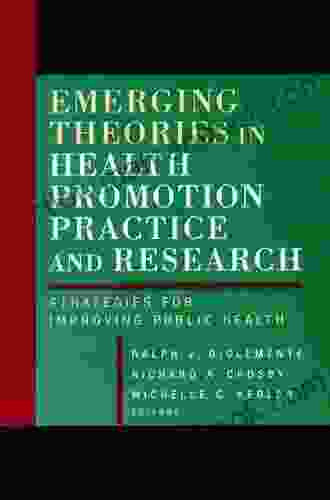
 Rubén Darío
Rubén DaríoTheory in Health Promotion Research and Practice
Theory is essential...

 Howard Blair
Howard BlairFailing Students or Failing Schools: Uncovering the Root...
In the United States, the issue of failing...
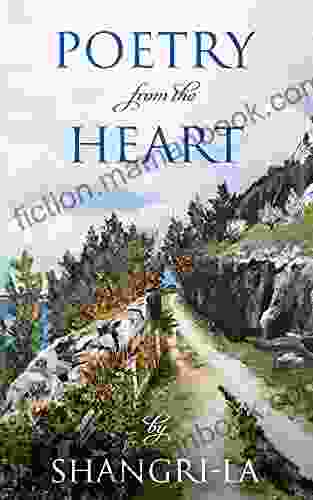
 Ira Cox
Ira CoxPoetry From the Heart Chope: A Symphony of Soul and Verse
Embark on a literary...

 Easton Powell
Easton PowellThe Witch Hunt: Wicked Witches of Shadow Woods
In the cursed woods of...
5 out of 5
| Language | : | English |
| File size | : | 5333 KB |
| Text-to-Speech | : | Enabled |
| Screen Reader | : | Supported |
| Enhanced typesetting | : | Enabled |
| Word Wise | : | Enabled |
| Print length | : | 656 pages |
| Lending | : | Enabled |


